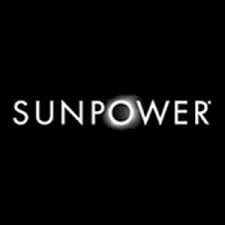
Who is right and how should investors view solar panel efficiency? This could be the most important factor in who will win in the future of solar, so let’s look at the role efficiency plays and how it affects the biggest players in the solar industry.
Solar panel efficiency affects cost
It isn’t as if efficiency and cost are factors that are mutually exclusive. The efficiency of a module directly influences the cost per kW-hr of a solar system. So, the intersection of efficiency, panel cost, and balance of system costs are what we need to consider.
Sunrun’s Fenster pointed out that the panel itself accounts for only about 20% of an installation’s cost and that decisions about staffing or racking costs are more important than a few cents per watt here or there. But he doesn’t think that the added cost of a SunPower Corporation (NASDAQ:SPWR) panel is worth it for installers. It’s also important to note that he doesn’t think low-quality Chinese panels will ever catch on, and that companies like Kyocera, LG, and Sharp, who have strong balance sheets, high quality, and low costs, will be winners instead of premium efficiency products. There is a minimum quality threshold a company has to meet, but in Fenster’s view SunPower Corporation (NASDAQ:SPWR)’s panels are over the top and not worth the cost.
I did ask both Fenster and Kreamer about using First Solar, Inc. (NASDAQ:FSLR) panels, but they’re so low efficiency and have little cost advantage over Asian-made panels that they’re not worth it. So, clearly efficiency matters, but only to an extent. The degree of that extent’s effect depends on where you sit in the industry.
Solar panels by the numbers
So, when does efficiency matter in a solar panel and when doesn’t it? Let’s look at a table I built late last year to illustrate how efficiency and costs interact. You can see the full list of assumptions used here. Below, you’ll find the cost breakdown of three systems with different efficiency levels, with the lowest efficiency also having the lowest cost. There are variable components and fixed components, and the 15% efficient module (a standard Chinese product) is slightly less than 20% of the total installation cost, while the 20% efficient module is 27% of the installation cost.
| 10% Efficient Module | 15% Efficient Module | 20% Efficient Module | |
|---|---|---|---|
| System Size | 2 kW | 3 kW | 4 kW |
| Module Cost per Watt | $0.65 | $0.75 | $1.00 |
| Total Module Cost | $1,300 | $2,250 | $4,000 |
| Variable BOS Cost | $2,500 | $3,750 | $5,000 |
| Fixed BOS Cost | $6,000 | $6,000 | $6,000 |
| Total Installation Cost | $9,800 | $12,000 | $15,000 |
| Annual kW-hrs | 3,154 | 4,730 | 6,307 |
| Cost per kW-hr (assuming 8% ROI) | 24.9 cents | 20.3 cents | 19.0 cents |
These figures should ballpark real-world costs and show that efficiency has a big impact on the final cost per unit of energy. Of course, there are many sensitive components in this analysis; if the 20% efficient module costs $1.25 per watt then it would no longer be cost effective. By the same token, if variable costs play a smaller role then efficiency plays a bigger role. These variables will behave differently depending on where a system is being installed.
In the example, you can see that efficiency matters but only to an extent. A high-efficiency module is only more cost-effective if it’s below a certain cost threshold. So, the bigger the gap between Chinese modules and SunPower Corporation (NASDAQ:SPWR)modules, the less attractive SunPower modules become. This is why SunPower hasn’t been able to compete in Europe in recent years. It has much lower BOS costs, and therefore, the cost of the panels matters more.
What’s clear is that efficiency does matter but only when the rest of the system’s costs and its performance are brought into the equation. If the panel is a small percentage of a system’s costs, efficiency matters a lot, and vice versa.




